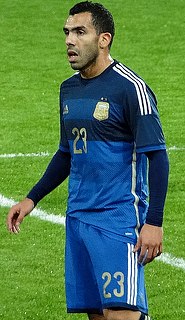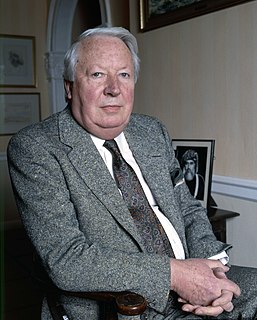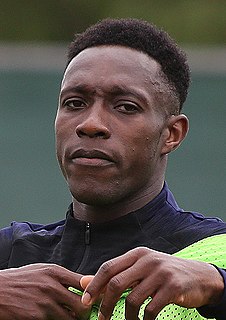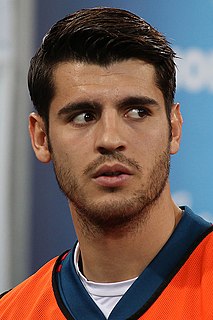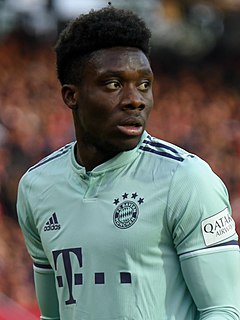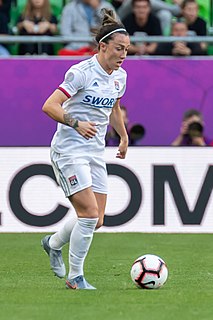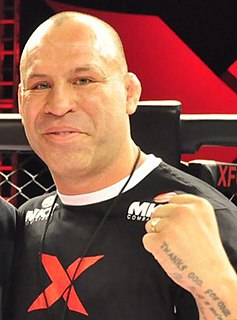A Quote by Carlos Tevez
It's hard to say you're struggling if you're a professional footballer. Other people have far greater problems.
Quote Topics
Related Quotes
The teacher would say, 'Not everybody makes it as a footballer, so what do you want to be?' I'd say, 'A footballer.' The teacher would say, 'But not everybody makes it. So what do you want to be?' I'd say, 'A footballer.' Every year that happened! Nothing was going to get in the way of me being a footballer.
By far the greater part of violence that humans inflicted on each other is not the work of criminals or mentally deranged, but of normal, respectable citizens service of the collective ego. One can go so far as to say that on this planet "normal" equals insane. What is it that lies at the root of this insanity? Complete identification with thought and emotion, that is to say, ego.
The Negro problem, like all other political problems, is fundamentally a moral issue. This is realism, not idealism. Those of my colleagues who believe that they are particularly 'hard boiled' because they overlook the fact that human beings are struggling for their consciences are simply unrealistic.
I know people's problems: the problems of those who work hard, who must slave away. The couples who have two incomes but who can nevertheless barely cover their rent. The people who get stuck in traffic on their way to work. The people who have to wait in vain for a train to come just as they are supposed to be picking up their children from daycare. I can say with a clear conscience to those people: I understand your problems. And I will do all I can to decrease them.
Solving problems is a practical skill like, let us say, swimming. We acquire any practical skill by imitation and practice. Trying to swim, you imitate what other people do with their hands and feet to keep their heads above water, and, finally, you learn to swim by practicing swimming. Trying to solve problems, you have to observe and to imitate what other people do when solving problems, and, finally, you learn to do problems by doing them.
